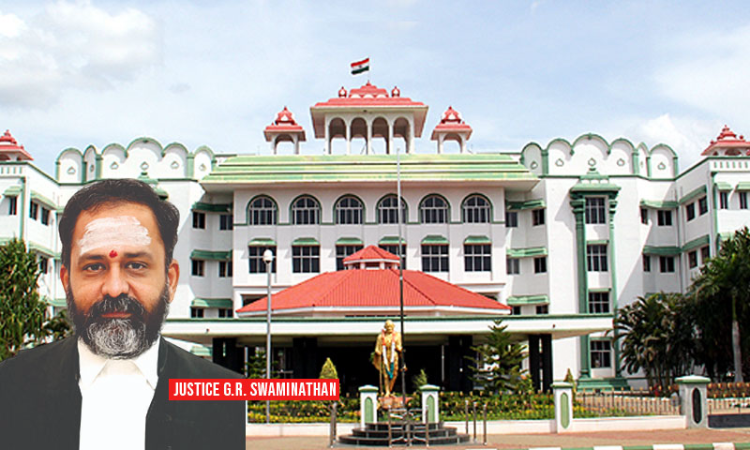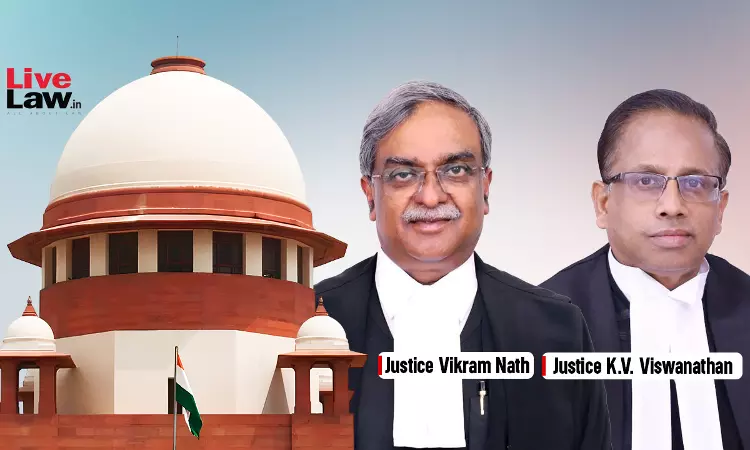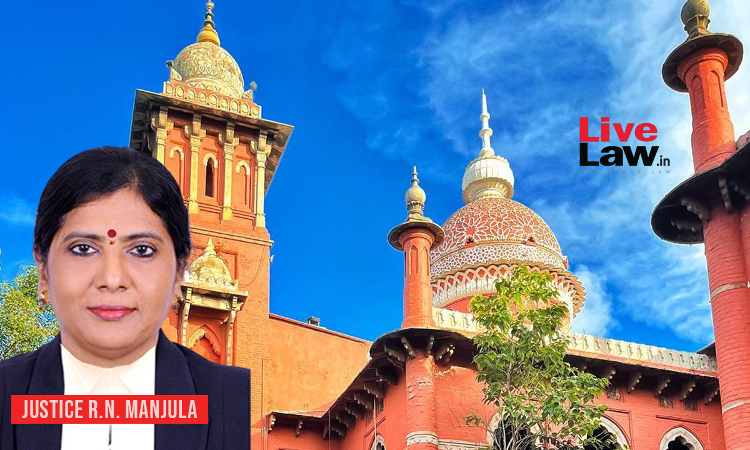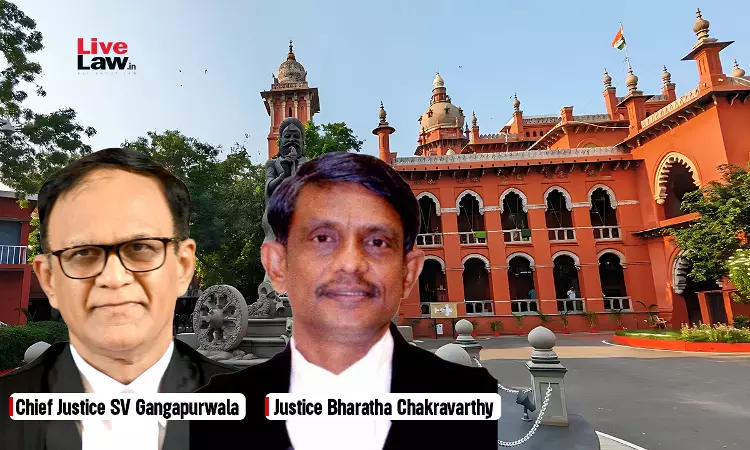
Tuesday, May 7, 2024
COVID Duty By PG Doctors Should Be Considered Bond Service: Madras High Court Directs Thanjavur Medical College To Return Original Certificates

Monday, May 6, 2024
Date Of Birth Recorded In HSC Pass Certificate Is To Be Taken As The Date Of Birth For All Purposes: Orissa High Court
Wednesday, May 1, 2024
Tamil Nadu: Court convicts Nirmala Devi in Madurai Kamaraj university sex racket case
Tuesday, April 30, 2024
Employee Appointed Through Valid Process Can't Be Denied Regularization If Performing Permanent Role For Considerable Time: Supreme Court

Monday, April 29, 2024
Retrospective Re-Fixing Of Salary And Pension Benefits After Retirement Is Against Law: Madras High Court

Sunday, April 21, 2024
Maternity leave can’t be denied during probation: Maha tribunal
Sunday, April 7, 2024
Supreme Court Comes to Rescue of UP Born Panipuri Seller’s Son, Upholds Medical Admission in Gujarat
Supreme Court Comes to Rescue of UP Born Panipuri Seller’s Son, Upholds Medical Admission in Gujarat By Law Trend April 5, 2024 12:38 PM
Read more: https://lawtrend.in/supreme-court-comes-to-rescue-of-up-born-panipuri-sellers-son-upholds-medical-admission-in-gujarat/
Saturday, April 6, 2024
MBBS Internship : Supreme Court Directs NMC To Submit Details Of Stipend Paid To Interns By Medical Colleges In All States
Saturday, March 16, 2024
COURT CASE
Reacting With 'Thumbs Up' Emoji To WhatsApp Message Informing Of Murder Does Not Amount To Celebrating The Murder: Madras High Court Upasana Sajeev 13 Mar 2024 9:25 AM Listen to this Article The Madras High Court recently upheld the order of a single judge reinstating a police constable into the service who was dismissed from service for reacting with a “thumbs up” emoji to a message about the brutal murder of a superior officer. The Madurai bench of Justice D Krishnakumar and Justice R Vijay
https://www.livelaw.in/high-court/madras-high-court/madras-high-court-pm-narendra-modi-road-show-permission-granted-coimbatore-252427?infinitescroll=1
Thursday, February 29, 2024
Supreme Court Approves Rajasthan Government's Two-Child Rule
Madras HC dismisses second bail plea of former TN Minister Senthil Balaji

Tuesday, February 13, 2024
COURT ORDER
'Pension Scheme Must Be Interpreted Widely' : Supreme Court Allows Central Govt Service To Be Included For Pension Of Gujarat Govt Employee Gyanvi Khanna 12 Feb 2024 11:47 AM Listen to this Article Recently, the Supreme Court, while granting a pension to a government employee under Gujarat Civil Services (Pension) Rules, 2022, observed that a government servant earns a pension in lieu of tireless service by him/ her. Further, pension is often an important consideration for the person(s) seekin
https://www.livelaw.in/top-stories/use-of-lord-ayyappas-pictures-in-voting-slips-supreme-court-upholds-kerala-hc-finding-that-petition-challenging-k-babus-election-is-triable-249314?infinitescroll=1
Friday, January 19, 2024
Madras High Court Directs National Medical Commission To Give Eligibility Certificate To Foreign Graduate, Says English Not Mandatory Subject

Sunday, January 14, 2024
Gratuity Calculated On Last Drawn Salary At Time Of Final Resignation If Employee Transferred Among Institutes Of Same Management: Bombay HC
Friday, January 5, 2024
Supreme Court rejects plea to remove Tamil Nadu Minister V Senthil Balaji from State Cabinet
Wednesday, January 3, 2024
Will not intervene in DMK’s campaign against NEET: SC
High court seeks report from magistrate who gave bail to Periyar University VC
Wednesday, November 22, 2023
HC relief for Block Development Officer
Don’t see a married woman’s residential status through a patriarchal prism, says HC
-
ஆசிரியர் பணியே அறப்பணி, அதற்கு உன்னை அர்ப்பணி என்றும், எழுத்தறிவித்தவன் இறைவன் ஆவான் என்றும், காலம் காலமாக தமிழ்நாட்டில் கூறப்படுகிற...
-
கொலுசு அணிந்த சரஸ்வதி * நாகப்பட்டினம் மாவட்டம் கடலங்குடியில் உள்ள சிவன் கோவிலில் வளையல், கொலுசு அணிந்தபடி சரஸ்வதிதேவி காட்சியளிக்கிறாள். ச...
-
கட்சியிலிருந்து நேற்றே ஒதுங்கிவிட்டேன்! டி.டி.வி.தினகரன் தடாலடி பேட்டி vikatan news ராகினி ஆத்ம வெண்டி மு. படம்: ஸ்ரீநிவாசலு 'அ.த...

